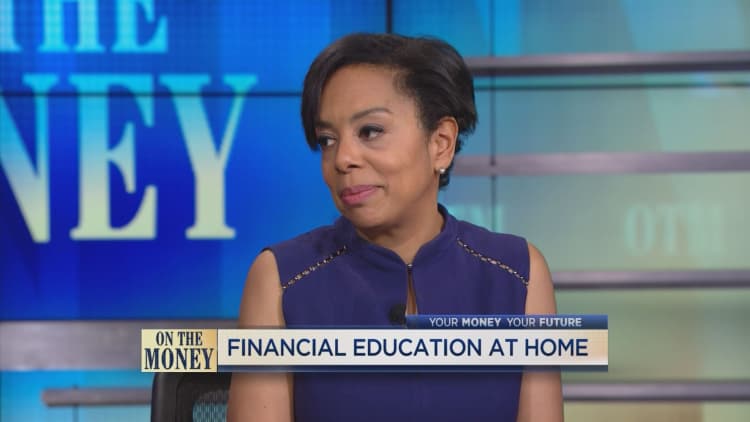Summer jobs can help young workers learn some lasting career lessons.
And if done right, those same opportunities working at summer camps or by the pool can also help form money habits that lead to long-term wealth.
Large numbers of high school and college students typically enter the labor force from April to July each year seeking summer employment, according to the Bureau of Labor Statistics. In 2017, the number of 16- to 24-year-olds in the labor force climbed to 23.1 million during those months.
"That's a perfect and wonderful time to start educating young people about investing," said Daniel LaPlante, chief investment officer at Citizens Bank Private Wealth Management. "It goes along with all the other education and growth experiences through those years."
Where to start
Young workers who want to invest should start by determining two things: their goals and their time horizon, according to Tim Steffen, director of advanced planning at Baird Private Wealth Management.
That could include saving for a down payment for a car or money to defray the cost of college.
Identifying exactly what you want to accomplish will then help you determine how to invest the money. For shorter-term goals, safe investments such as money market funds, savings accounts or CDs are key. For a long-term horizon, you can expand to other investments like stocks.
"If you're trying to turn $1,000 into $3,000, you're going to have to invest in something like equities," Steffen said. "If you're willing to take your $1,000 and turn it into $1,100 over a couple of years, then you might want to look at something more conservative.
"It depends on what your goals are and what you're starting with."
What to invest in
For an individual investor, buying individual stocks in small dollar amounts will likely be more expensive, according to Steffen.
That is because the higher fees and expenses associated with odd lots, or increments of less than 100 shares, will require higher returns to overcome those costs, Steffen said.
A better way to invest would be through an index fund or an exchange-traded fund, according to Steffen, which allow you to invest in smaller increments and offer broad diversification.
How to invest
Young workers who are under 18 may not be able to open an account on their own. As such, parents may need to assist with this setting up a regular taxable account for them, Steffen said.
A student willing to start investing over a long-term time horizon may want to consider an individual retirement account, or IRA, that takes pre-tax investments.
Or they can consider a Roth IRA, which will allow them to invest post-tax dollars towards those long-term goals.
"A Roth isn't going to give them a deduction today, but that's OK, because the deduction isn't worth that much to them" at the salary they are earning, Steffen said. "But they'll be able to start building tax-free income for later in life when they'll presumably be in a much higher bracket than they are in right now."
When in doubt, parents may want to turn to an investment professional with whom they already have a relationship for guidance.
"It's pretty easy to open a really small account where the parents have an investment relationship," said LaPlante at Citizens Bank Private Wealth Management. "When the time comes and the children own all the assets, they're not going to be completely green and inexperienced."

Parental guidance
Young workers may need some prodding when it comes to planning for these long-term goals.
Parents can help overcome that by offering to match the money they make with investments, LaPlante said. But the help should stop there.
Sometimes parents try to encourage children to invest by holding them harmless and making up for their losses, he said.
"Then the children don't learn risk, return, diversification and patience because mom and dad are going to write a check if they need to," LaPlante said. "It short circuits the learning."
Tax responsibilities
Young investors should be aware that they will eventually have to pay the Tax Man on any investment that generates income.
Likewise, they will be on the hook to report the wages they earn now to the Internal Revenue Service.
That includes money made through odd jobs and tips, the agency said in its recent tax tips for teenagers.
More from Personal Finance:
This bus could be your ticket to a new job
How to get higher pay and not blow it for the future
If you're hunting for a job, expect to do this for free


